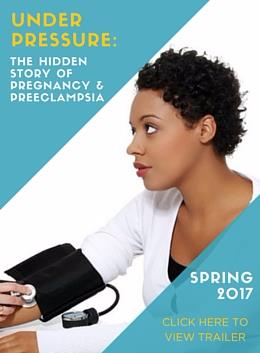Minimal Serious Maternal and Fetal Complications
By: Molly Walker
Women treated with eculizumab (Soliris) for the rare stem cell disorder paroxysmal nocturnal hemoglobinuria (PNH) experienced minimal maternal and fetal complications throughout their pregnancy, according to the results of a small registry on women with PNH.
Richard J. Kelly, MB, of St.. James’s University Hospital in Leeds, UK, and colleagues, reported no thrombotic events for patients during pregnancy, with only two out of 75 pregnancies (3%) experiencing a postpartum thrombotic complication. There were also no maternal deaths and only three fetal deaths out of 69 pregnancies carried to term (4%), they wrote in The New England Journal of Medicine.
Gabrielle Meyers, MD, a hematology and oncology specialist at Oregon Health & Science University in Portland characterized this study as “important” because PNH in young women has been considered a very high risk situation, with physicians discouraging patients with PNH from becoming pregnant. Meyers was not involved with this study.
“Like any pregnancy in a patient with a chronic illness, careful planning, monitoring and support is critical to success,” she told MedPage Today via e-mail. “This study highlights the importance of supporting research in rare diseases, as outcomes from this study will likely impact other pregnancy-associated diseases.”
Eculizumab did not appear to impact fetal outcomes. The drug was not present in the collected breast milk samples of 10 patients, and was only detected in seven out of 20 samples of cord blood, with levels ranging from 11.8 to 21.2 μg per milliliter.
Overall, there were 69 children born out of 75 pregnancies (6 miscarriages occurred during the first trimester). The mean age of children who survived was 31 months (range 4 to 94). Of these, 64 children received developmental assessments. One child with neutropenia after delivery was asymptomatic, and the number of neutrophils returned to normal by the time the child was 12 months of age, and one child had slightly delayed speech and was referred to a speech therapist.
Kecia Gaither, MD, MPH, a maternal fetal specialist at Montefiore Medical Center in New York City, told MedPage Today in an e-mail that she thought this study would make a significant impact in obstetric care.
“This information is exceedingly helpful to health providers globally who have to care for these patients,” she said. “I think it sets a great precedent as to the validity of this being a treatment modality for pregnant patients with the disorder.”
But despite these positive maternal and fetal outcomes, PNH complications persisted during pregnancy, delivery, and into the postpartum period. In addition to the two postpartum thrombotic events, there were two additional events that occurred in patients who stopped receiving eculizumab 12 weeks after delivery. After recommencing eculizumab therapy, neither patient had a further complication, Kelly and colleagues wrote.
There were also 10 clinically relevant bleeding episodes, eight of which were postpartum hemorrhage, one antepartum hemorrhage, and one episode of recurrent epistaxis.
Not surprisingly, patients required increased transfusion of red cells, from a mean of 0.14 units per month 6 months prior to conception to 0.92 units per month during pregnancy. Nearly half of the 75 women surveyed (54%) experienced breakthrough intravascular hemolysis requiring either more frequent use or higher doses of eculizumab, and low-molecular weight heparin was used in a large majority of pregnancies (88%).
The rate of premature delivery was unsurprisingly high (22 pregnancies, or 29%), though the reasons varied:
· Planned cesarean delivery (7 patients)
· Preeclampsia (6 patients)
· Growth retardation or fetal size below 10th percentile (5 patients)
· Falling maternal platelet count (3 patients)
· Reduced fetal movement (1 patient)
Data was solicited from members of the International PNH Interest Group and physicians participating in the International PNH Registry. The response rate was 80% (75 out of 94 questionnaires returned). The median age of patients at the start of pregnancy was 29 years (range 18 to 40). Of these women, 61% had been using eculizumab prior to conception, and 42% started eculizumab in the second or third trimester. One patient discontinued eculizumab at 12 weeks gestation. Nine women (15%) were diagnosed with PNH during pregnancy.
The authors noted the nature of the study as a limitation, though they said it would not be ethical to conduct a randomized trial about the effects of eculizumab during pregnancy. They also stated that the study was subject to selection bias as the patients were studied retrospectively.
Gaither also pointed out that not all patients received the same dosage of the drug throughout their pregnancy, as well as the fact that if the drug is being coupled with other treatment modalities, one doesn’t know if these issues would have specific effects on maternal/fetal outcomes. She did see the potential for studying eculizumab to treat other serious conditions during pregnancy.
“With further research, the drug may serve as an adjunctive therapy for those patients with severe preeclampsia,” Gaither added.
Kelly and colleagues noted that both hematologists and obstetrical care specialists participated in the delivered care to achieve the outcomes reported.
“Overall, our findings showed acceptable outcomes when eculizumab treatment was used in the management of PNH in patients during pregnancy,” they concluded.






